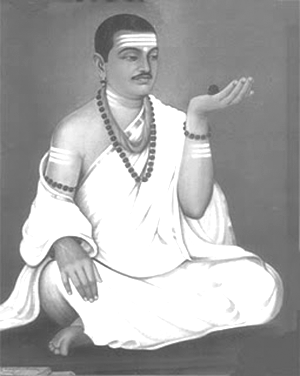Basavanna : A Kabir in his Own Right
 Basavanna wrote poems full of abstract thought and content. Visual arts have seen the growth ‘abstractism’ in the present century. Abstractism is defined as what the artist creates without following any set of rules about the visual arts. It can be said the artist works from his or her imagination or subconscious. The inner self finds expression.
Basavanna wrote poems full of abstract thought and content. Visual arts have seen the growth ‘abstractism’ in the present century. Abstractism is defined as what the artist creates without following any set of rules about the visual arts. It can be said the artist works from his or her imagination or subconscious. The inner self finds expression.
Often these works are difficult to explain or interpret, even for the artist creating them. In actuality, explanations and interpretations should be left to the viewer (reader); the artist should remain silent on this aspect.
Artists within Abstractism look at all art with a new eye, with new feeling and with new emotion thus creating an entirely fresh view and style. The work created by an artist is for the viewer to observe and contemplate, to conjure up a feeling within (not necessarily related to the title). The artist creates the work to evoke an emotional reaction.
Basavanna’s poems spring from the subconscious. He is not very particular about his technique but his poems do conjure up an emotion. The name of that emotion is restlessness. Basavanna writes in order to make the reader unhappy with the existing state of affairs. The revolutionary Basavanna, the saintly Basavanna sings in order to change things. A Brahmin who writes against Brahmins, the example of this great visionary of 12th century Karnataka is unique in world history. To quote:
"In a brahmin house
where they feed the fire
as a god
where they feed the fire
as a god
when the fire goes wild
and burns the house
and burns the house
they splash on it
the water of the gutter
and the dust of the street,
the water of the gutter
and the dust of the street,
beat their breasts
and call the crowd.
and call the crowd.
These men then forget their worship
and scold their fire,
O lord of the meeting rivers!"
and scold their fire,
O lord of the meeting rivers!"
Comments
Post a Comment